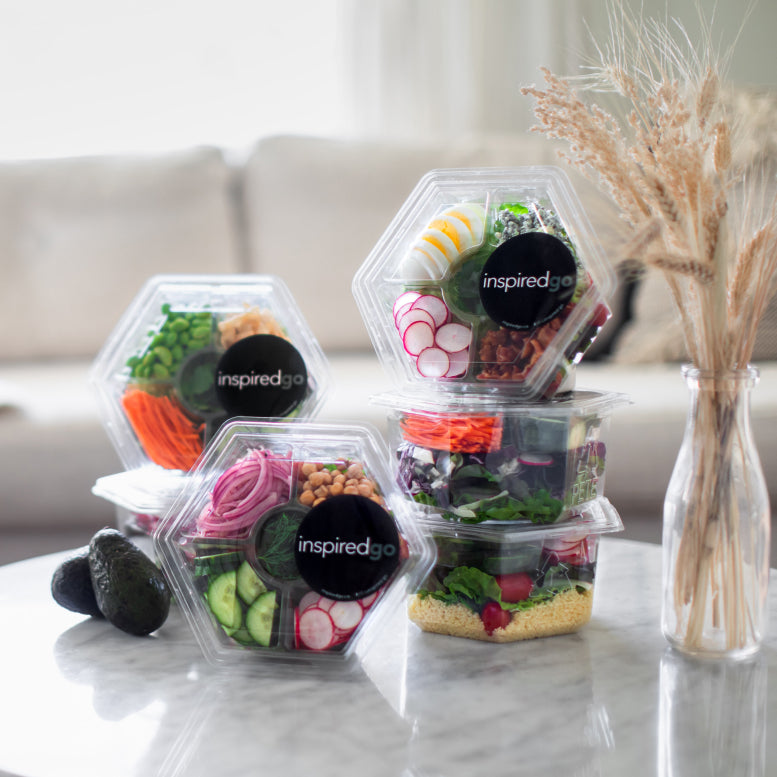Do Gluten-free Meals Fit Into A Mediterranean Diet?
Table of Contents
1. Gluten-Free Options in a Mediterranean Diet
2. How Convenient Is Gluten-Free Meal Delivery for Everyday Eating?
3. Are Gluten-Free Meals Designed for a Busy, On-the-Go Lifestyle?
4. Why Do Health-Conscious Shoppers Choose Inspired Go for Gluten-Free Meals?
1. Gluten-Free Options in a Mediterranean Diet
While conventional wisdom might lead you to believe that a Mediterranean diet, with its emphasis on whole grains, is incompatible with a gluten-free lifestyle, this is not necessarily the case. In reality, the Mediterranean diet is quite diverse and can easily accommodate gluten-free needs without sacrificing flavor or nutrition. This diet is renowned for its focus on fresh fruits, vegetables, lean proteins, and heart-healthy fats - all of which are naturally gluten-free. Additionally, there are several gluten-free grains like quinoa, rice, and millet that can serve as satisfying substitutes for traditional wheat-based products. Hence, it is entirely possible to adhere to a gluten-free regimen while embracing the Mediterranean diet's principles of variety, balance, and simplicity. Moreover, there are numerous ready-to-eat meal delivery services that offer gluten-free Mediterranean options, making it even more convenient to enjoy this healthy eating pattern.
Order fresh salads today →


2. How Convenient Is Gluten-Free Meal Delivery for Everyday Eating?
Gluten-free meal delivery services are designed to meet the needs of busy individuals and families looking for both ease and nutrition. Whether you're managing celiac disease, gluten sensitivity, or simply exploring a gluten-free lifestyle, convenience plays a key role in staying consistent. With pre-prepped ingredients and clearly labeled allergens, gluten-free kits save hours spent meal planning, shopping, and cooking. Most services also offer flexible scheduling, allowing you to pause, skip, or adjust deliveries based on your routine. This adaptability helps reduce food waste and encourages balanced eating, even when life gets hectic. For those asking,“Can you get gluten-free meals delivered weekly?”—the answer is yes, with many plans offering reliable, fresh, and ready-to-eat gluten-free meals tailored to your preferences and schedule.
Choose your salads and schedule delivery →
3. Are Gluten-Free Meals Designed for a Busy, On-the-Go Lifestyle?
Gluten-free meals have come a long way in terms of accessibility and convenience. Today’s gluten-free delivery options are specifically built with busy professionals, families, and students in mind. Most meals arrive pre-portioned, partially prepped, or completely ready-to-eat, with some requiring only minimal reheating or no cooking at all. This makes them perfect for packed schedules, especially if you’re looking for gluten-free lunches or dinners that travel well to work or school. With options like microwaveable containers, ready-made salads, or grain bowls, staying on track with a gluten-free diet no longer means spending hours in the kitchen. These services also minimize grocery trips and mealtime decision fatigue, helping you keep healthy food on hand, even on the busiest of days.
Get fresh salads and snacks delivered →
4. Why Do Health-Conscious Shoppers Choose Inspired Go for Gluten-Free Meals?
Health-focused eaters trust Inspired Go because the brand consistently delivers gluten-free meals that support their wellness goals without compromising on taste or nutrition. These meals are built around clean-label ingredients—no preservatives, no fillers, and no gluten—just whole foods prepared with purpose. Whether you're looking to boost energy, reduce inflammation, or manage symptoms of gluten sensitivity, Inspired Go offers meals that align with these goals. With fast delivery and a 5-day fridge life on most items, it's a seamless way to keep healthy choices at your fingertips. Their meals also support plant-forward eating, gut health, and balanced macros, making them especially popular with customers following anti-inflammatory or low-FODMAP diets. It’s healthy eating—designed to fit real life.
Try our fresh, ready-to-eat salads →
Frequently Asked Questions
The keto diet can be healthy for some individuals, but its effectiveness and safety depend on personal health goals and conditions. It emphasizes low-carb, high-fat foods to encourage the body to burn fat for energy. While it may promote weight loss and improve blood sugar control, it can also lead to nutrient deficiencies if not balanced properly. Consulting a healthcare professional before starting the keto diet is highly recommended.
Starting a healthy diet involves gradually introducing nutrient-rich foods while reducing processed and sugary options. Focus on whole foods like fruits, vegetables, lean proteins, whole grains, and healthy fats. Meal planning can simplify your efforts and help create balanced portions. Additionally, stay hydrated and avoid extreme restrictions. Beginning with small, sustainable changes allows you to build habits that support long-term health.
A low-carb diet can be healthy when balanced with nutrient-dense foods. Reducing carbohydrates and focusing on proteins, healthy fats, and vegetables can improve blood sugar control and promote weight loss. However, cutting carbs too drastically can lead to fatigue, nutrient deficiencies, or digestive issues. For a sustainable low-carb diet, incorporate a variety of nutrient-rich foods and avoid overly restrictive practices.
A healthy diet is balanced and includes a variety of nutrient-dense foods from all major food groups. It prioritizes fruits, vegetables, whole grains, lean proteins, and healthy fats, while limiting processed foods, added sugars, and excessive sodium. Portion control and proper hydration are key components. A healthy diet not only supports physical health but also boosts energy levels, mental clarity, and overall well-being.
The Mediterranean diet is often regarded as one of the healthiest. It focuses on plant-based foods, such as fruits, vegetables, whole grains, nuts, and seeds, alongside healthy fats like olive oil. Moderate amounts of fish, poultry, and dairy are included, while red meat is limited. Known for reducing the risk of heart disease and improving longevity, it offers a well-rounded approach to healthy eating.

